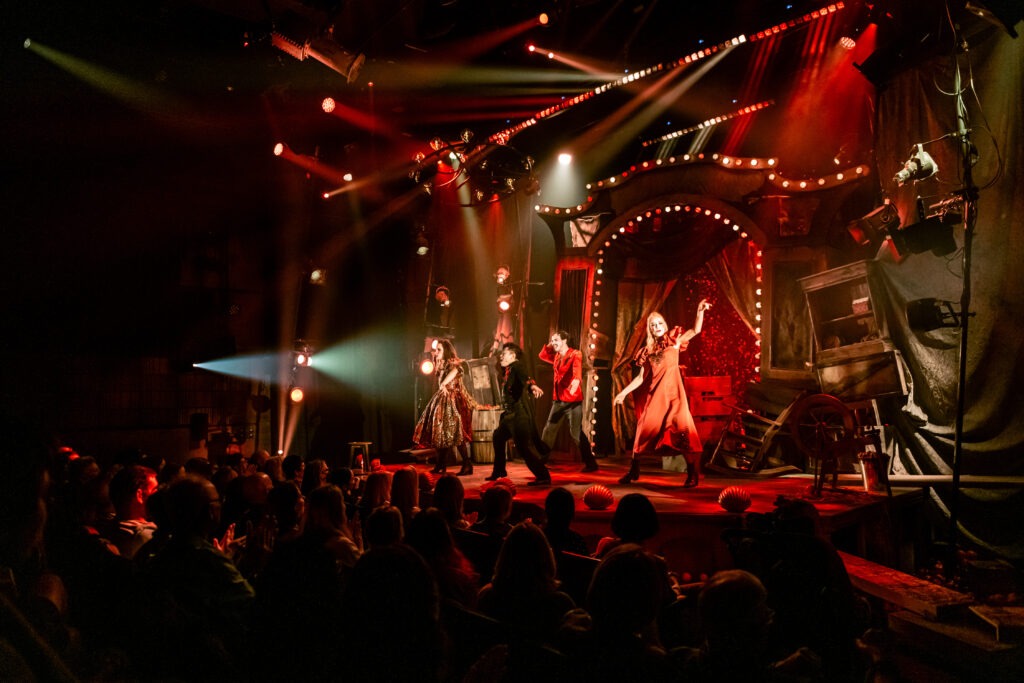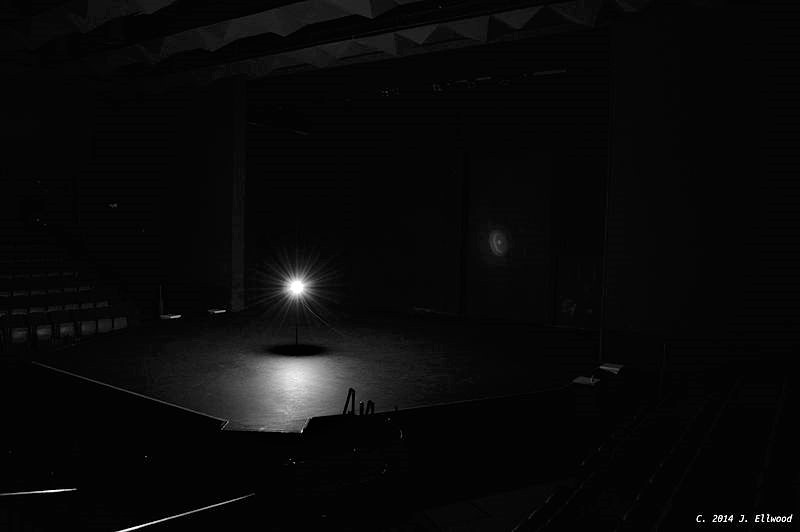
Superstitions of a Theatrical Proportion
We all want our theatre seasons to run smoothly. From word-perfect lines to timely scene transitions, to precisely cued sound and lighting and quick costume changes. While the world of theatre sits somewhere between the imaginations of a writer and the consciousness of the audiences, a series of superstitions have become part of this theatre life. It does take a village to pull productions together, however, overlooking these urban legends could have detrimental effects (or so we think).
We’ve gathered a list of some of the most popular theatre superstitions out there. From the use of ‘Macbeth’ on stage to ‘Break A Leg over Good Luck’, has your show played victim to some of these theatrical superstitions?
“Break a Leg” over “Good Luck”
A pretty commonly well-known theory is that you never say ‘good luck’ to those who work in the theatre. Rumour has it that there are mischievous spirits out there who will do the opposite of what you say, i.e. saying good luck will actually mean the ghosts will grant bad luck. Instead, well wishes are normally said in the form of ‘Break a Leg’ or ‘Chookas’.
What’s the origin of those you may ask? Well not only are you pulling ye’ old reverse psychology on them pesky spirits but in vaudeville times the leg of the stage was the base of the curtain. By saying ‘break a leg’ an actor stepped into the spotlight. In Shakespeare’s time, the audience’s line of sight was broken when an actor picked up food that was thrown (aka their dinner). ‘Chookas’ refers to a similar feat where if you performed well, you’d eat chicken for dinner. At least it’s nice to know that even back in Shakespeare’s time artists struggled to be paid.
Never say ‘Macbeth’ out loud
Starting a career in the arts? Rule Number #1 – never say the name of the “Scottish play” in a theatre… like ever. Just don’t be that guy! It’s 100% a confirmed curse.
Shakespeare’s Scottish drama centres around the prophecy of witches and incantations. Outside of theatre and definitely outside of a show, you’re more than welcome to talk about the play openly. However, if anyone were to speak the name “Macbeth” in a theatre prior to any performances, bad stuff is said to happen – like, things going wrong during a performance. If someone does say it, it’s said they need to perform a ritual to remove the curse. One in particular, as documented in ‘The Dresser’ is to leave the theatre building or room, spin around three times, spit, curse and then knock to be allowed back in.
Not only can this be vouched for by some members of the Theatre Haus team, but it happened to a friend of a friend of ours. This superstition is absolutely valid. Remove ‘Macbeth’ from your vocab starting now. If you have to say it, please use the following – ‘Mac’, ‘Lady Mac’ and ‘The Scottish Play’.
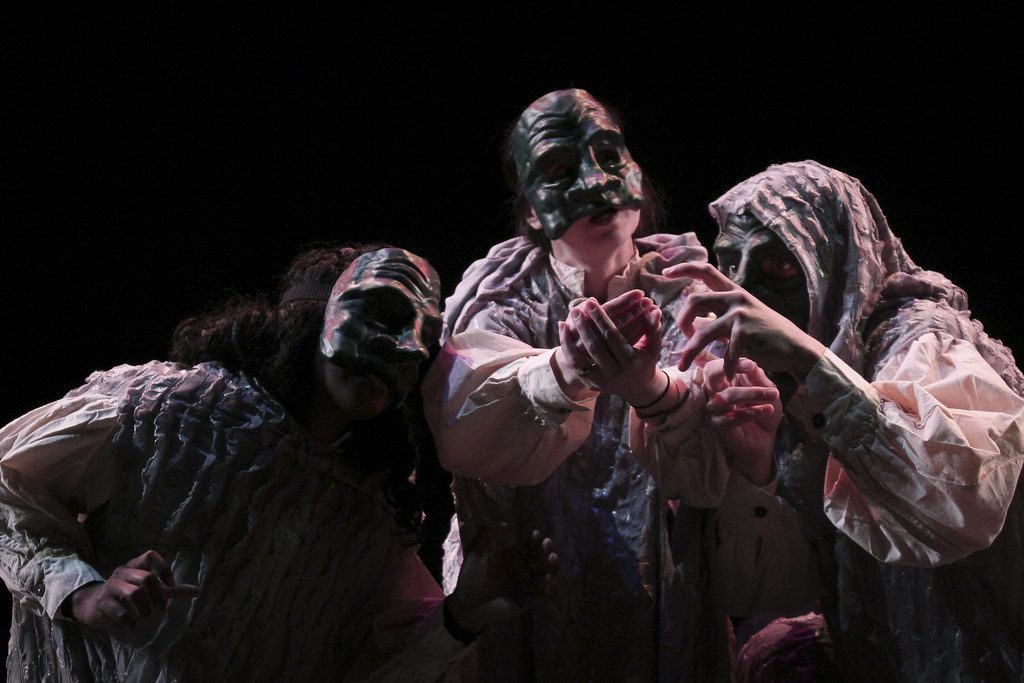
No Whistling in the Theatre
It’s thought that whistling on or off stage brings bad luck to an actor – and it could if misinterpreted! Original stage crews were once hired from ships or ports as theatrical rigging has similar origins to that of sailing rigging. Back in the day where no hydraulics or advanced rigging systems were available, scene changes were cued by sailors/stage crew whistling to each other. An actor who whistled as well could prompt the wrong scenery change and confuse the crew on hand. This could result in injury or death especially if a set or backdrop was to fly in or out – so whistling was avoided if you didn’t want to be a stage ghost yourself. While in today’s theatre, most stage crew use intercoms, we’ll just say that the general rule is ‘no noise backstage’.
An Empty Seat for the Theatre’s most Ghostly Patron
Ask any theatre group and they’ll have a story about their friendly Casper the ghost who roams the premises. While it’s equally eerie as it is endearing, a common good luck omen is to leave a seat open for the spirit to sit in. Such a gesture is thought to ensure a smooth and successful production. And with the ghost watching the show, they sure won’t wreak havoc in the middle of the performance.
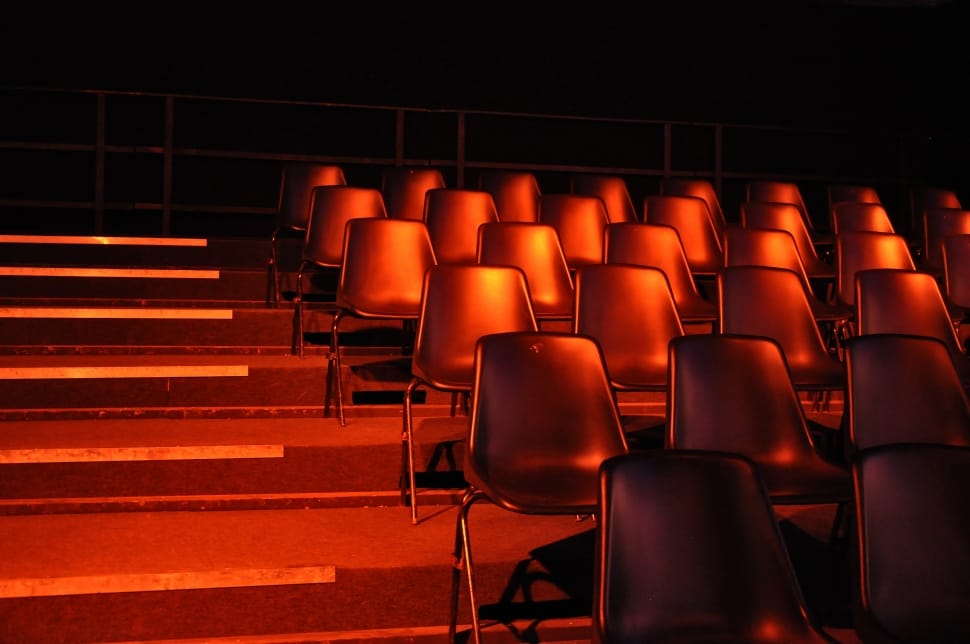
Bad Dress Rehearsal = Good Show
While it may be an old wives tale and its origin is quite unknown, many theatre groups believe that a bad dress rehearsal is a good omen for a great opening night. Albeit on occasion, a disastrous final rehearsal leads to an incredible opening, but we think success boils down to the show’s committed artists, solution-orientated stage crew and prepared production teams. A healthy dose of adrenalin doesn’t go astray either.
Leave a ‘Ghost Light’ on
The saying goes to never leave a stage unlit. Not only is it practical to avoid accidents and obstacles (like furniture, trap doors and orchestra pits) by lighting our way, but it also protects us from theatre spirits who cause havoc in the dark. Before electricity, lights were powered by gas and running a ‘ghost light’ burned excess gas to eliminate pressure and the result of an explosion. While we don’t use gas nowadays, the tradition of leaving a light on remains. Most superstitious creatives believe the light keeps spirits away and prevents them from playing mischievous pranks.
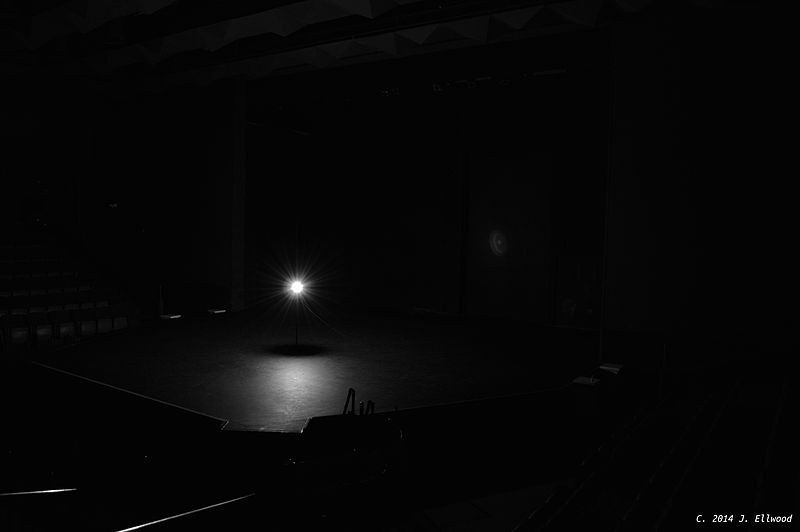
No flowers before a show
Flowers are a common gift to bestow upon a loved one or friend to wish them well in their performance. However, there are certain legends on when to give the gift. While flowers signify a great show, giving them before a performance is thought to tempt fate and invite unlucky energy into a theatre. Cue the bouquet from Mum after the show!
Give the director a Graveyard bouquet
Following on from the etiquette of flower giving, an old tradition was to give the director of a show a bouquet of flowers stolen from a graveyard. This macabre and downright creepy gesture was thought to be symbolic and denote the end of a production, or rather the production’s death. Historically, actors didn’t make a lot of money and so this was an inexpensive way to say thank you. But like all absurd traditions, we’re happy to let this one die itself.
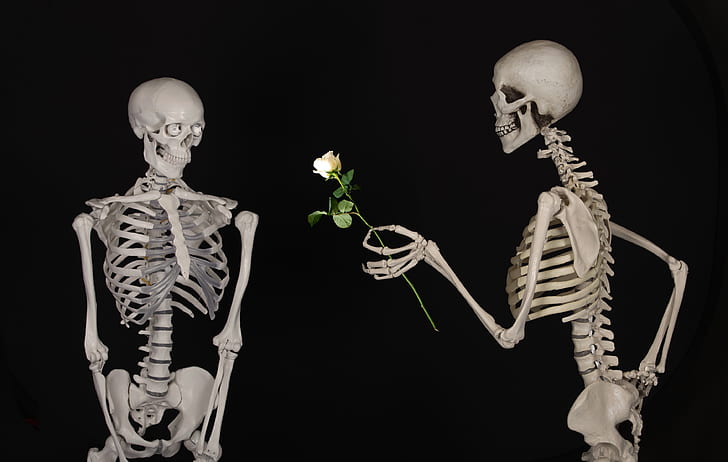
Don’t be ‘blue’ on stage
Several centuries ago, blue dyes were expensive and difficult to use in clothing. That being said, a theatre’s success was often judged by their ability to afford and don blue coloured costumes. To deceive audiences, unsuccessful acting groups spent their budget on the costumes alone. Therefore, successful troupes paired blue costumes with silver adornments, to distinguish even further. As a result, blue costumes onstage can be thought of as an unlucky colour and a sign of failure. However, not all is lost and the colour is considered acceptable when partnered with silver.
Never light a trio of candles
Not only is an open flame a risk to any theatre, but legend has it that candles should never be lit in three’s. It is believed the person standing closest to the shortest candle will be the first to die. While the origin of this superstition has long been extinguished, the general rule should be ‘no flammables in any theatre’. And these days, theatre spaces are a precious commodity.
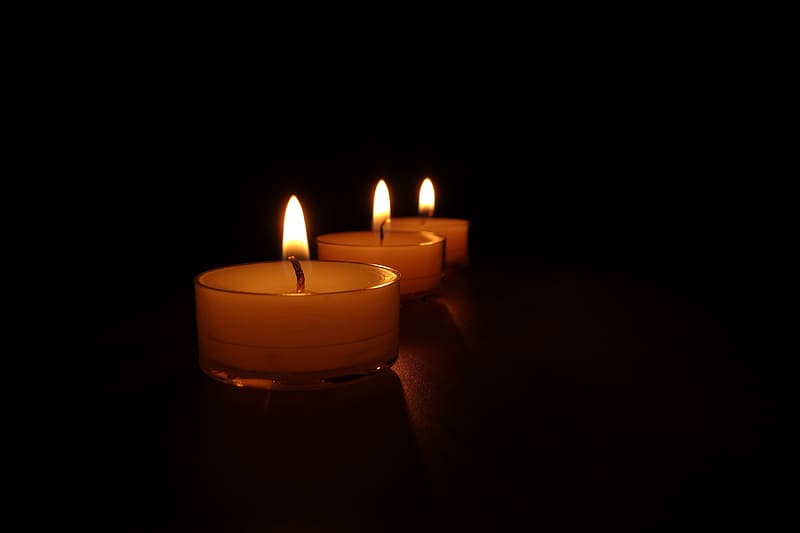
No peacock feathers or mirrors on stage.
Probably the least common on our list of superstitions, and one that isn’t as easy to navigate, it’s thought that having peacock feathers, money or mirrors on stage brought bad luck. For peacock feathers, they have a deep blue circle at the end, and according to legend, it looks like an evil eye. Much like the ‘Macbeth’ curse, theatres don’t risk anything remotely associated with evil to a production. The same is applied for mirrors and their long-standing legend of seven years of bad luck. Break one and it could have catastrophic effects on any production. Acrylic mirrors are assumed to be fine, hence why ‘A Chorus Line’ does so well.
Beware of a visit from the ghost of Thespis
When theatres aren’t lucky enough to have their own ghost (as pointed out above) they may rely on a visit from the ghost of Ancient Greek, Thespis. Known as the first person to ever appear on stage as an actor playing a character in a play, Thespis may be the scapegoat to all things problematic in a production.
Sleep with a Script under your Pillow
Thought to be an act of telepathic line delivery, theatrical superstition says the practice will help you learn your lines faster. While some cheeky performers may think it might be beneficial, science deems this impossible and we suggest learning and memorising lines the old-fashioned way.
If you’ve encountered any of the above superstitions or ghosts comment in our section below. We’re keen to debunk these myths if possible and if your urban legend is missing, let us know!
Better yet – maybe some theatre ghosts will visit this Friday the 13th…




